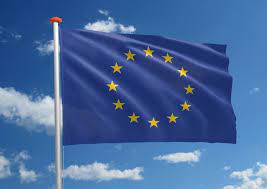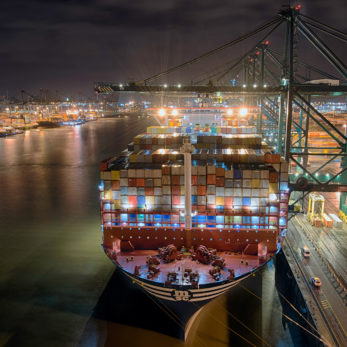The EU customs pre-arrival security and safety programme, underpinned by a large-scale information system (ICS2), is one of the main contributors towards establishing an integrated EU approach to reinforce customs risk management under the common risk management framework (CRMF). It will support effective risk-based customs controls whilst facilitating free flow of legitimate trade across external borders through improved data-driven customs security processes, adapted to global business models.
Its implementation represents a core EU customs instrument for managing entry security and safety border controls, and is the first line of defence in terms of protection of the EU internal market and the EU consumers.
What is ICS2?
ICS2 is the new EU customs advance cargo information system that will facilitate free flow of trade through improved data-driven customs security processes, adapted to global business models. It will collect data about all goods entering the EU prior to their arrival. The system will be used by EU customs authorities to ensure security and safety of all people living in the EU.
What are the benefits of ICS2?
ICS2 will:
- strengthen protection of EU citizens and the internal market against security and safety threats
- allow EU Customs authorities to better identify high-risk consignments and intervene at the most appropriate point in supply chain
- facilitate cross-border clearance for the largest part of legitimate trade
- simplify the exchange of information between Economic Operators (EOs) and EU Customs Authorities.
Who does ICS2 affect?
ICS2 will directly affect all Economic Operators involved in handling, shipping and transporting of cargo, express or postal consignments, such as:
- Postal operators within/beyond EU
- Express delivery services
- Air cargo carriers
- Freight forwarding logistics companies
- Ultimate consignees established in EU (for goods received via maritime transport)
- Maritime, railway and road carriers
- Representatives of above.
These economic operators will need to provide the safety and security data to ICS2.
ICS2 will indirectly affect all manufacturers, exporters and individuals from outside the EU, wishing to send goods to or through the EU. They will have to provide the necessary information to the directly affected stakeholders.
Releases
The system will become operational in three releases. Economic Operators will begin declaring safety and security Entry Summary Declaration (ENS) data to ICS2 in phased approach based on the type of services they provide in relation to international movement of goods.
Each release affects different Economic Operators (EOs) and modes of transport. EOs will begin declaring to ICS2 depending on the type of services they provide.
Release 1
As from 15 March 2021 express carriers and designated postal operators established in the European Union (destination posts) will be required by the UCC to provide the minimum set of advance electronic data, in the format of the electronic Entry Summary Declaration (ENS) to the ICS2, for all goods in consignments they are responsible to bring into the EU Customs territory.
ENS will be mandatory for all express and postal consignments destined to enter the Union customs territory. The aim is to provide an extra security layer to the existing civil aviation security requirements. Pre-loading advance cargo information (PLACI), as a subset of the ENS, will be used by the EU customs authorities to perform air cargo and mail security risk assessment.
Release 2
As from 1 March 2023, all goods by air in postal, express and general cargo consignments will be subject, in addition to pre-loading filing requirements, to complete pre-arrival ENS data requirements. Furthermore, air carriers and other parties such as freight forwarding logistics providers, will become liable to submit minimum pre-loading and complete pre-arrival data to ICS2.
Release 3
As from 1 March 2024, maritime, road and rail carriers, including postal and express carriers that transport goods via those modes, and other parties, such as logistic providers, and in certain circumstances also final consignees established in the EU, will have to submit ENS data to ICS2.
Sources:


